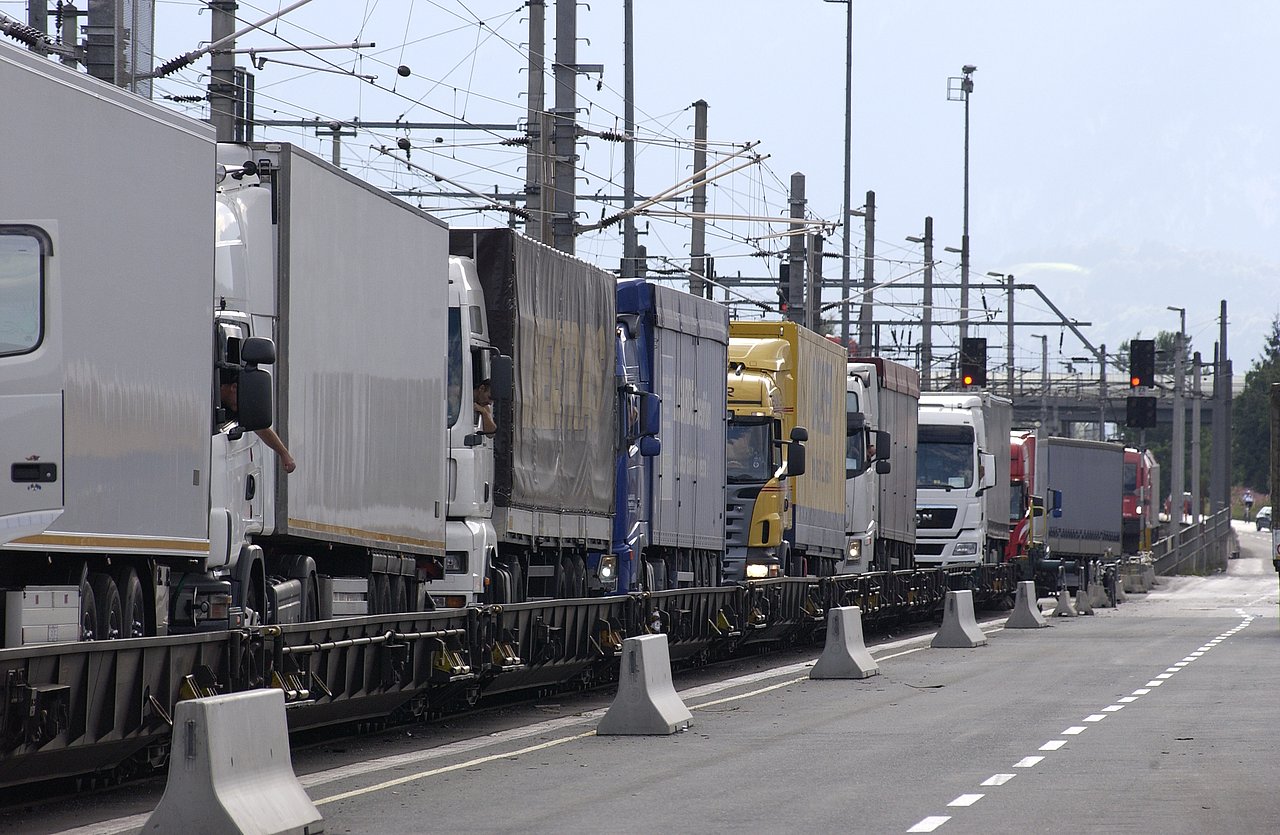iMONITRAF! Lunch Event in Brussels 2021
iMONITRAF!, the network of the most affected Alpine transit regions is committed to an ambitious modal shift policy for the decarbonisation of the transport sector. During the lunch event, which took place in Brussels and online, political representatives from the iMONITRAF! regions discussed the Alpine perspective with Members of the European Parliament and invited stakeholders to find common solutions and to identify windows of opportunity in the EU legislative framework.
The analysis of the iMONITRAF! Policy Scenarios 2030 has shown that only a combined approach - focusing on both a consistent modal shift and technological progress - is able to meet the transport and environmental challenges of the next decade and in the long term. Taking into account existing EU, national and regional targets and the available toolbox, the iMONITRAF! partners have developed a policy pathway to achieve the combined scenario. Daniel Alfreider (Vice-Governor, Autonomous Province of Bolzano), Dimitri Moretti (Government Councillor, Canton of Uri) and Ingrid Felipe (Vice-Governor, Land of Tyrol), as political representatives of the iMONITRAF! partner regions, highlighted the alpine-specific needs for an ambitious policy framework. It is a European need to effectively manage the increasing traffic volumes and capacities on road and rail across borders. Due to the central location in Europe and the sensitive environment, these needs are particularly pressing along the transalpine corridors. Implementing the polluter-pays principle for fair road pricing must be part of the solution to shift freight from road to rail.
In order to implement specific policies, the Alpine regions need a strong European framework that takes into account the specific needs and constraints of the Alpine corridors. The revision process of the Eurovignette Directive can be seen as a showcase to make the common voice of the Alpine regions heard at EU level - the implementation of the EU's smart and sustainable mobility strategy and the Fit for 55 package now offer many new opportunities. MEP Barbara Thaler and MEP Herbert Dorfmann expressed their disappointment about the new Eurovignette Directive and emphasised that the EU's climate targets are enshrined in law and can only be achieved through joint efforts rather than individual approaches. Stephan Tischler (CIPRA International) added that decision-makers should refer to the Alpine Convention with its legally binding protocols in order to implement an effective modal shift policy. James Nix (Transport & Environment) took a more positive view of the Eurovignette directive, while Ilja Lorenzo Volpi (CER) outlined the priorities of the European rail sector.
Europe is very much about finding common ground, and with road infrastructure already reaching its limits, the goal is not to shift traffic from one corridor to another, but from road to rail. The speakers called on iMONITRAF! to continue its efforts to find common ground and joint solutions to reduce emissions from freight transport, prioritising modal shift as the most effective decarbonisation measure.
